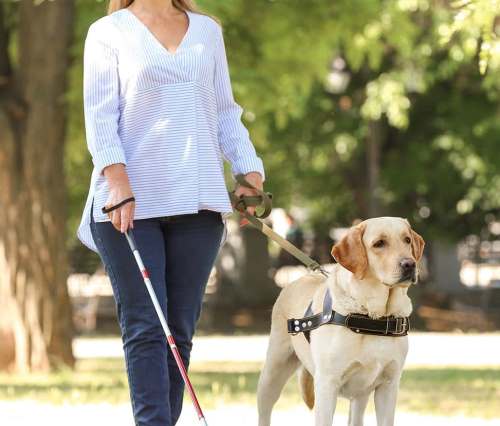Can landlord say no to pets under the new Victorian Pet Rental Laws?
Victorian Rental Laws Pets
Key Takeaways
Consumer Affairs Victoria have updated the laws regarding pets in rental properties
New pet laws came into effect 2 March 2020
Rental providers can only refuse permission with approval from the Victorian Civil and Administrative Tribunal (VCAT)
These changes which occurred in March 2020 to the Victorian pet rental laws mean that renters are allowed to keep pets at a rental property, with the written permission of the rental provider (landlord). If you are a Rental provider / landlord, you can only refuse permission with approval from the Victorian Civil and Administrative Tribunal (VCAT RPL).
Keep in mind that for the purpose of the Victorian pet rental laws, that the definition of a “pet” under the law is any animal except an assistance dog. So, no, you can’t claim that your pet bird isn’t a pet because it loves your local arborist.
These law changes bring up many legal issues and problems for renters and landlords alike, and often cause extra scrutiny during building and pest inspections. We are experiencing an increased demand for our specialist property lawyers Parramatta to resolve these disputes between the landlord and the tenant. This enables us, in almost all occasions to resolve the matter before it reaches VCAT. If the matter does reach VCAT, we have successfully defended on both sides of the fence; for our landlord clients and also our tenant clients.
How?
The key is to understand the new Victorian Pet Rental Laws perfectly, and more so to interpret why the changes were required. In most circumstances, working with a specialist litigation lawyer Parramatta / dispute negotiator enables your dispute to be resolved without the need for further action or cost.
The first step is key to diffusing the situation to ensure further disputes and legal costs are negated.
Do the new Victorian Pet Rental Laws allow me to keep my pre-existing pets?
Yes, the new Victorian Pet Rental laws do not apply to rental properties that already have pets. If a renter has a pet before 2 March 2020 in the rental property, there is no need to seek the written consent of the rental provider again.
I’m getting a new pet. How do I get written permission from the landlord for NEW Victorian Rental Laws Pets?
If you are the renter and you want to bring a new pet into the property, the new Victorian pet rental laws require you to request the rental provider’s / landlords consent in writing.
How?
You must use the Consumer Affairs Victoria pet request form for all new Victorian Rental Laws Pets. This does not apply to pre-existing pets.
If you are a renter, you can do this by email if you and the landlord have agreed to communicate in this way.
Before seeking consent, renters should check with their property lawyer that the pet they intend to keep complies with existing council laws or other laws. These laws still apply regardless of whether the rental provider consents to the pet.
This previous step is where 99% all of the disputes arise with the Victorian pet rental laws. That is, the landlord or renter has misunderstood the new laws due to not conferring with a property lawyer. Most property lawyers like Optimum Lawyers Parramatta will offer you a free consultation, so quick advice shouldn’t cost you a thing.
How does a landlord consent to a written request for a new pet?
The landlord can respond to the tenant in writing, providing their consent.
Under the Victorian pet rental laws, if the rental provider / landlord does not apply to VCAT (to request that the pet not be allowed) within 14 days of receiving the written request, they are taken to have consented to the request.
Can landlords refuse pets Victoria?
This is were it’s not so black and white and where an interstate property lawyer expert that deals with this new law every day can quickly establish your rights.
Under the new Victorian pet rental laws, the landlord cannot unreasonably refuse consent to a renter wishing to keep a pet. If a rental provider wants to refuse, they have 14 days to apply for a VCAT order. VCAT may order that, either:
• the rental provider’s refusal is reasonable and/or the pet should be excluded from the property (meaning the renter cannot keep the pet on the premises), or
• the renter can keep the pet.
If the rental provider does not apply to VCAT within 14 days of receiving the written request, they are taken to have consented to the request.
What reasonable grounds will VCAT consider?
Before arriving at a decision, VCAT may consider the following factors:
• the type of pet the renter wants to keep, or is keeping, on the property
• the character and nature of the property itself, including appliances, fixtures and fittings
• whether refusing consent to keep the pet on the property is allowed under any Act.
Can landlords say no to emotional support animals?
No, your landlord cannot deny an emotional support animal (ESA) just on the basis that they do not allow pets. Under the Victorian pet rental laws, you can simply submit proof that you have and require an emotional support animal to your landlord. This is no different to a normal pet for which you would need to request permission from the landlord in writing.
Emotional Support Dogs and Emotional Support Animals are not recognised under Australian law, so ensuring you have a strong legal case is crucial if you proceed to VCAT(if the landlord denies permission). This can be the difference between keeping your pet, and losing your pet.
Can a landlord refuse an assistance dog?
Assistance dogs or animals are expertly trained and are required to be registered to assist a person with a disability.
No, your landlord cannot deny or refuse access to your service dog.
Why?
Service dogs are protected by the ADA. Additionally, service dogs are defined as medical tools and not pets. Further, it is in fact illegal for a landlord or even strata to deny or refuse you keeping an assistance animal. This has not changed with the new Victorian pet rental laws.
Who pays for damage caused by pets to a rental property?
In the event that a pet causes some damage to a rental property, the renter is required to repair any pet-related damage that goes beyond ‘fair wear and tear’. Again, this has not changed with the new Victorian pet rental laws.
What happens if you don’t tell your landlord about a pet?
If you get a new pet in Victoria and don’t tell your landlord, the landlord has the legal right to apply to VCAT to get an order which removes or excludes the pet from the rental property. The landlord would have to have reasonable suspicion that you are keeping a pet there without their consent or knowledge.
Under the new Victorian Rental Laws Pets must be removed from the premises if an order is made by the VCAT sitting member. In other words, in the event that a removal/exclusion order is made by VCAT with regards to your pet and you don’t remove your pet from the rental premises within 14 days, your landlord can then issue you with a notice to vacate.
Does the tenant or landlord win in court for NEW Victorian Rental Laws Pets?
Since the new Victorian pet rental laws have taken effect in early 2020, we have had many renters and landlords asking us this same question.
Who would win?
As with anything with the law, it depends on your case and the negotiation skills of a good litigation lawyer. The key with choosing the right lawyer is to ensure they are expert property lawyers also that have sufficient experience in property law matters such as this.
Have there been any recent cases that have been tested at VCAT since the new Victorian pet rental laws?
Yes. We have been following several cases very closely to see how they play out.
Case in point, recently in 2020, in one of the first tests of the new Victorian pet rental laws, a couple in Victoria successfully argued their case at VCAT to keep their dog Rocko.
The couple lived together with their dog in a Wodonga rental property.
Gemma Vearing and Taio Bullock submitted an application to VCAT to keep Rocko on 2nd March 2020 which was just one day after the new Victorian pet rental laws came into effect.
The Landlord Craig Teschner did not provide consent for the tenants to keep their dog and took them to the Victorian Civil and Administrative Tribunal. The decision maker Kim Knights ruled in favour of the tenants.
The CEO of “Tenants Victoria” Jennifer Beveridge said it was a big win for tenants and renters.
“It’s symbolic – and another sign that residential property isn’t just a financial investment for landlords, it’s a home for people,” she said.
The landlord decided not to hire legal representation for the hearing. Instead, the property manager for the landlord, Sue Ritchie represented the landlord Mr Teschner, and said they were “very disappointed” Ms Knights didn’t rule in their favour.
“We’ve objected on the grounds that insurance will need to increase, because there are only two companies that I’ve found that do insurance for pets, and your premiums and excesses go up,” Ms Ritchie said.
“The landlord had pets kept there a year ago without permission and they caused a lot of damage to the property.”
Mr Teschner’s evidence was that he had allergies and could not live in the property again if he needed to move in. He would require extensive cleaning prior to moving in.
The findings by Ms Knights stated that it was a commercial decision for the landlord to take out more insurance or not, and this isn’t valid legal grounds to refuse consent for Victorian Rental Laws Pets because it would “thwart the purpose of the pet laws”.
Ms Knight decided that she was “not satisfied” that the landlords claimed allergies were a valid reason to reject permission to keep the pet Rocko at the house.
“I do not consider it unreasonable that the landlord or prospective future tenants would do such cleaning as they require for their individual health requirements,” she said.
Ms Ritchie said she wasn’t happy about the ruling.
“We feel that landlords are disadvantaged by this new law because most insurance policies that landlord[s] can take out against their properties do not cover pet damage,” she said. “And the ones that do will increase the premiums.”
She added that she believed the landlord’s reasons for not allowing Rocko were reasonable and fair, and that the new laws didn’t allow landlords much wriggle room.
“When these laws were written if the purpose of the law was to allow pets in all properties it would have been stated that way, however, the legislation is written that the landlord has the right to refuse on reasonable grounds.
“It is not reasonable that a decision of the tenants could cost the landlord and they have no right of reply.”
How did the tenant win their legal argument to keep their pet under the new Victorian Rental Laws Pets?
Or in other words, how did the landlord lose? What did the tenant do that forced the judge to decide in their favour?
If we dig a little deeper into the case, the reasoning is in fact quite simple. The tenant came prepared with an expert property lawyer who also practised litigation. Their arguments were clear, concise and well presented.
The landlord on the other hand had no legal representation. He decided to allow the property manager to argue his case. This is a big mistake, which eventually ends up costing people more in the long run.
For more information, including the pet request form, you can visit the Consumer Affairs Victoria Pets and Renting page.
You can contact our office for guidance if you have a conflict or question about Victorian Rental Laws Pets.
Wisam Assi
Principal Lawyer
Let’s Work Together
© 2021 Optimum Lawyers. Website Design and Development by SureTech




Recent Comments